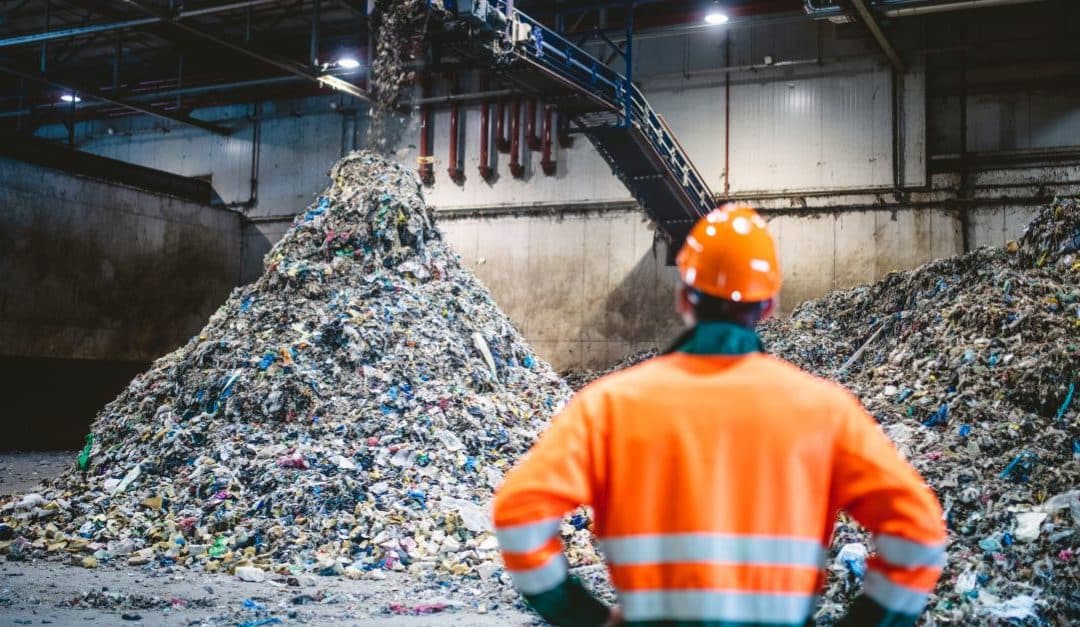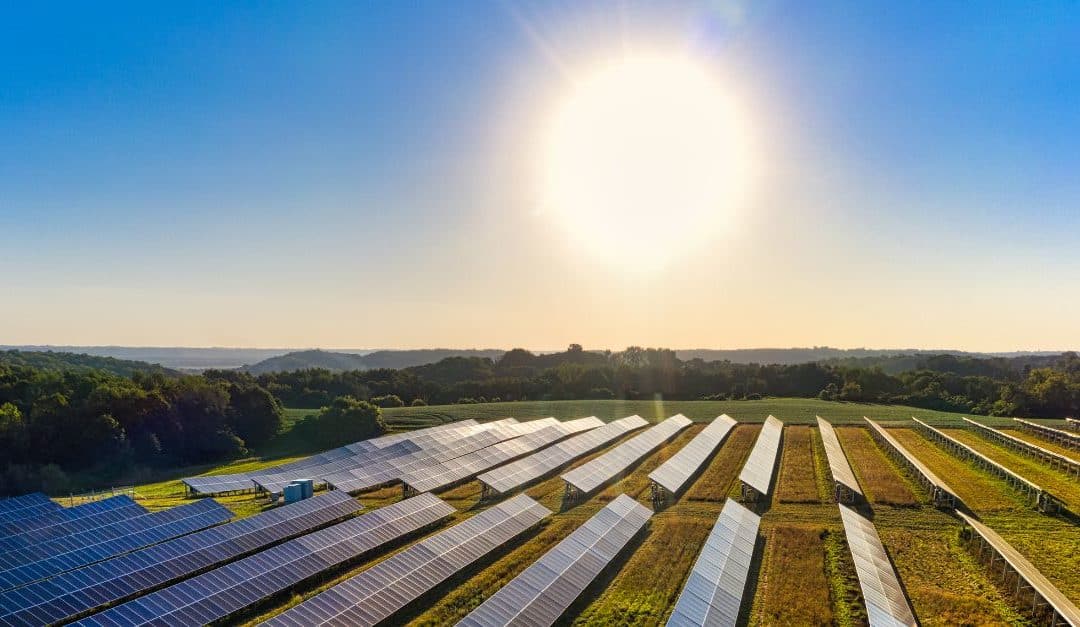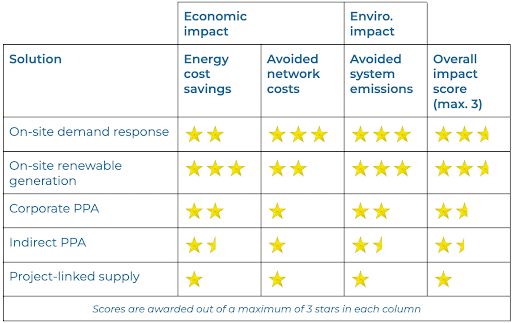
by Chris Hargreaves | Feb 16, 2024 | News, Sustainable Business
In the fast-paced world of business, every dollar counts. At Total Utilities, we’ve got your back, ensuring you not only save money but also make your business more eco-friendly. Our services aren’t just about being green; they’re about boosting your efficiency and profits.
Smart carbon management:
Let’s make managing carbon a breeze. Our Carbon Inventories Emissions Checklist, paired with our Carbon Insights platform powered by Net0, makes measuring and reducing emissions easy. By teaming up Net0’s advanced tech with our know-how, we offer a quick and efficient solution that trims costs and boosts efficiency.
Low carbon solutions:
Supercharge your business with our game-changing low-carbon solutions. From tailor-made solar power systems to energy-efficient technologies, we help you save money and position your business as a sustainability champion.
Waste makeover:
Revolutionise how you deal with waste with our Integrated Waste Management services. We don’t just cut costs; we enhance your sustainability game. Let’s reduce waste disposal expenses, implement smart recycling, and turn waste management into a money-saving opportunity.
Cleaning magic:
Cleanliness meets cost-effectiveness with our commercial cleaning procurement. We secure you the best deals without compromising on quality. Sustainability is a top priority – we pick providers that match your needs and eco-goals.
Utility wizardry:
Tackling utility bills is our expertise. We dive into the complex utility market, securing you cost-effective and green energy solutions. Our detailed analysis ensures not just savings but significant cost reductions.
Insider insights:
Knowledge is power. Our utility reporting and insights service empowers you to make smart decisions and find more savings. Whether it’s Utility Insights, Carbon Insights, or Energy Insights, we give you real-time data, smart tips, and cost-saving measures.
Efficiency hacks:
Streamlining your operations is what we do best. Through audits for waste, lighting, heating, and more, we find ways to cut costs and make your business more efficient.
Join us on this journey:
At Total Utilities, every dollar saved isn’t just a win for your wallet; it’s an investment in your business’s growth. Let’s make your bottom line flourish as we guide your business towards a greener and more prosperous future.

by Chris Hargreaves | Jan 23, 2024 | News, Sustainable Business, Waste
When it comes to waste management, businesses are seeking solutions that not only support their sustainability goals but also offer tangible benefits.
Total Utilities’ Sustainable Business Improvement Manager Pravind Singh explains that Total Utilities is working to reshape business waste practices whilst keeping a sharp eye on delivering great value to its customers.
“Our mission is simple – to redefine waste management in a way that makes sense for our customers. It’s about going beyond services and ensuring businesses see real value in what we offer.”
“We understand that our customers want to demonstrate Corporate Social Responsibility (CSR) without compromising financial outcomes. Our commitment is to find solutions that strike that delicate balance, ensuring that sustainability is an investment, not an expense.”
Empowering businesses with compelling services
Pravind explains that Total Utilities offerings comprise integrated waste reporting, waste audits and overseeing highly competitive RFP bid processes for your waste services.
“Our advanced waste reporting tools are designed to empower businesses. By seamlessly integrating waste metrics with energy consumption data, we provide insights that lead to tangible improvements in operational efficiency, which, in turn, means cost savings for our customers.”
“Waste audits follow a similarly customer-centric approach, and are about more than just compliance. They offer a deep-dive into understanding each business’s unique needs, allowing us to make recommendations that will bring direct benefit to your operations.”
“Finally, our waste procurement service is designed to align with our customers’ goals. It’s not just about securing the best deal; it’s about securing the most sustainable solution that contributes positively to our customers’ long-term success.”
Showcase your sustainability commitment
Pravind emphasises that meeting environmental standards through responsible landfill diversion solutions is more than just a checklist item – it’s a chance for businesses to protect the environment whilst showcasing their commitment to sustainability.
“In today’s business landscape, where being environmentally responsible matters, compliance isn’t just about following the rules; it’s an opportunity for businesses to demonstrate their dedication to the environment.”
“This not only benefits the planet but also enhances a company’s reputation. People notice and appreciate when a company acts responsibly, building trust and goodwill in your brand.”
“At Total Utilities, we see every challenge as an opportunity and our goal is simple – to provide waste solutions that make sense for our customers.”
“Environmental responsibility, practical waste solutions, and sustainability are not mutually exclusive. We work to seamlessly align them to ensure our customers’ ongoing success,” adds Pravind.
Find out more:

by Chris Hargreaves | Jan 23, 2024 | Energy, News, Sustainable Business
As businesses step into the new year, the focus inevitably turns to financial goals, and one crucial aspect of this is optimising utility costs.
So, let’s explore just five practical steps you can take to save on utilities, while simultaneously promoting efficiency and sustainability:
Step 1: Comprehensive utility audit
Embark on the journey to optimised utility costs by conducting a detailed assessment of your business’s consumption patterns through a comprehensive utility audit. This thorough examination allows you to analyse current usage, pinpoint inefficiencies, and set realistic targets based on your baseline consumption.
As a strategic partner, Total Utilities provides invaluable support with advanced reporting tools, offering a deeper understanding of your utility costs. Our commitment extends beyond identification – we strive to empower your business with insights that form the foundation for targeted and sustainable solutions, ensuring lasting benefits in utility optimisation.
Step 2: Implement energy-efficient practices
After establishing your baseline, the next step is adopting energy-efficient technologies and practices – for example, upgrading to LED lighting, installing smart thermostats, and using energy-efficient appliances.
Strategies like off-peak energy usage can also lead to significant savings. Taking advantage of lower rates during off-peak hours contributes not only to cost efficiency but also supports a sustainable approach to energy consumption.
Step 3. Waste management & reduction
Conducting a waste audit is an important step in fostering sustainable business practices, identifying opportunities for waste reduction and recycling.
Implementing strategies like composting and material reuse post-audit contributes to significant waste reduction, aligning with eco-friendly practices and often resulting in both environmental benefits and cost savings.
Educating employees on sustainable waste practices ensures the ongoing success of these initiatives, fostering a culture of responsibility and active participation in environmental stewardship.
Step 4. Strategic procurement and RFP management
Optimising utility costs involves a strategic approach and Total Utilities can assess your current providers and explore competitive proposals through a well-managed Request for Proposal (RFP) process. It’s crucial to prioritise providers that offer both competitive rates and sustainable solutions.
Ensuring that procurement decisions align with long-term sustainability and cost-saving goals is essential. A commitment to fiscal prudence and a sustainable, forward-thinking ethos results in responsible long-term utility management. Making strategic procurement choices not only contributes to financial efficiency but also establishes a positive, enduring impact on the environment.
Step 5. Invest in renewable energy and low carbon solutions
Begin by exploring the integration of renewable energy sources, such as solar or wind power, strategically aligning with both environmental conservation and financial objectives. In tandem, direct investments towards low carbon solutions to actively contribute to a greener future. Simultaneously, leverage cutting-edge technology and innovations to minimise reliance on high-carbon resources.
This strategic step extends beyond mere cost considerations, actively supporting environmental goals and embodying a forward-thinking approach to sustainable utility management. By embracing renewable energy and low carbon solutions, businesses not only pave the way for financial efficiency, but also make a lasting positive impact on the environment. This dual commitment reflects a conscientious and forward-looking strategy in the pursuit of optimal utility management.
Smart, efficient, sustainable choices with Total Utilities
With Total Utilities by your side, steps to manage your utility costs become more manageable. Our advanced reporting tools and expertise in waste management, energy efficiency, and sustainable solutions ensure that your journey towards financial efficiency aligns seamlessly with your commitment to the environment.
In a nutshell, this isn’t just about saving money. It’s about making smart choices that save you cash and help the planet.
As your business steps into the new year, remember – by making the right choices, you’re creating a future where your success and environmental stewardship go hand in hand.
Find out more:
Start your New Year off on the right foot by contacting us to book a free utility management consultation.

by Chris Hargreaves | Jan 23, 2024 | Case Studies, Sustainable Business, Waste
Client: Prominent hotel & entertainment group
The challenge: waste overload
When a renowned hotel group faced a waste management challenge across multiple locations, the problem was clear — too many suppliers, unclear reporting, and a hefty price tag. They needed a solution to streamline operations, reduce costs, and align with sustainability goals.
Our solution: nationwide RFP, supplier consolidation, and purposeful reuse
Total Utilities tackled the challenge comprehensively. Initiating a nationwide Request for Proposal (RFP) for various hotel sites, we aimed to consolidate services to two suppliers, enhancing engagement and simplifying reporting.
Simultaneously, during hotel refurbishments, we facilitated a connection between the hotel and ‘Free For All,’ a charity specialising in furnishing homes for families in need. The hotel embraced the opportunity to redirect materials from landfill to meaningful reuse, creating a sustainable and purposeful solution.
The outcome: a greener, leaner, and more compassionate future
The hotel group experienced significant savings of $105,000 annually – an impressive 21% reduction in spend – ensuring a greener and more sustainable waste management future.
The commitment to fixed pricing, transparent reporting, and supplier engagement not only simplified invoicing but also contributed to the group’s broader sustainability goals.
Simultaneously, the hotel’s decision to repurpose materials made a positive impact on both the environment and needy families.
This commitment to sustainability extended beyond financial savings, creating a ripple effect of positive change within and beyond the hotel’s walls.
These impressive results show that smart waste management isn’t just a cost-saver; it’s a game-changer for your business, a win for the environment, and can provide real and measurable benefits for your local community.
Learn more
Contact us to find out more about our Waste Management service.

by Chris Hargreaves | Dec 10, 2023 | Energy, New Zealand Energy Certificates, News, Sustainable Business
Contributed by Paul Coster, Founder of EVA Marketplace
Given the need for businesses to slash fossil fuel consumption, part 1 asked the burning question, ‘can backing renewables be both a pragmatic commercial decision and contribute to climate action?’ I then explained that the climate-friendly way for most New Zealand businesses to back renewable energy is through electricity, by both demand response and supporting additional renewable generation.
Here in part 2, I will start by detailing the solutions available to businesses, explain the role played by energy certificates, and then discuss which solutions can have the most impact.
Solutions
Readily available solutions for supporting renewable electricity are shown below. Each of these solutions requires an electricity supply agreement, and some require a power purchase agreement (PPA). See this recent blog post by EVA to learn more about PPAs and how they differ from supply agreements.
Businesses can combine solutions for greater impact, such as having demand response, on-site generation, and a corporate PPA. In all cases, a relationship with an electricity retailer is retained.
1. Demand response
Technology is installed on the business’s site that allows electrical equipment (including battery storage) to respond to changes in the electricity market, such as high prices or plentiful renewable generation.
Use case: industrial facility installing technology to switch between an electric boiler and a thermal (e.g. biomass) boiler to produce steam. The thermal boiler is used during high prices or when the carbon intensity of the grid is high. An example is
Open Country using Simply Energy’s technology.
2. On-site generation
Renewable generation is installed on or near the business’s site. The project is owned by the business, or owned by a developer who agrees to sell the electricity onto the business via an on-site PPA.
3. Corporate PPA
Renewable generation is constructed remotely (‘off-site’). The project is owned by a developer who agrees to sell the electricity to the business via a corporate PPA, helping to financially support their project. The corporate PPA will typically be sleeved (bundled) into the business’s supply agreement.
4. Indirect utility PPA
Renewable generation is constructed off-site. The project is owned by a developer who agrees to sell the electricity onto a retailer via a utility PPA, helping to financially support their project. The retailer on-sells the electricity to the business under similar terms using PPA sleeving (bundling).
5. Project-linked supply
Renewable generation is constructed off-site. The generator agrees to sell the project’s renewable attributes onto a retailer via energy certificates. The retailer passes the certificates onto the business under their electricity supply agreement or another agreement.
Use case: a business that receives energy certificates from a new renewables project under their electricity supply agreement.
Energy certificates
Energy certificates play an essential role for these solutions where renewable electricity is exported into a network. The certificates track renewable attributes for each unit of electricity, avoiding double counting (*1) and reducing the chance of mis-leading claims (*2).
Currently, energy certificates don’t consider the impact of a solution, such as its economic, environmental or social benefits. In New Zealand, issuers of energy certificates are Brave Trace. (NZ-ECs) and Energy Market Services (iRECs). Certified Energy recently announced future plans to add an impact attribute to their certificates.
Impact
In assessing the potential impact of each solution, we’re going to focus on their economic and environmental impact. The social impact of each solution will greatly depend on the approach taken by the project developer (e.g. community involvement and initiatives).
In order to assess potential impact, I considered various factors, including these three key solution characteristics by asking the following questions:
- Additionality: To what extent would the avoided system emissions have occurred in absence of the solution?
- Location: How does the physical location of the solution (on-site or off-site) affect energy cost savings and avoided costs or emissions?
- Timing: How does the timing of the demand response or electricity generation affect energy cost savings and avoided costs or emissions?
A broad brush assessment of each solution’s potential impact, based on NZ’s current market and the evidence I’ve seen, is shown below. In the complex real-world, the impact will vary for each individual solution (or combination of solutions) and, in the case of demand response, how it is operated day-to-day. Discussion of real-world impact is rich and requires its own series of blog posts.

Generally, demand response and on-site generation, particularly when combined, have the highest potential for commercial and climate impact. They’re followed by PPAs, an excellent solution for businesses where on-site solutions aren’t feasible or can’t meet their full electricity needs. Solutions that solely rely on energy certificates, like a project-linked supply, will typically have the lowest impact. Their impact depends on the revenue created by the certificates and how this money is used (businesses should request transparency).
Like part 1, this post is my current thinking, which I hope opens up more discussion about the impact businesses can have on Aotearoa’s clean energy transition.
* References
1. “The GHG emission reductions or removals from the mitigation activity shall not be double counted, i.e., they shall only be counted once towards achieving mitigation targets or goals”, Core Carbon Principles, The Integrity Council
2. Energy certificates can be used to claim lower scope 2 emissions, and are therefore a form of carbon credit or offset. To be high integrity offsets, they should align to The Integrity Council’s Core Carbon Principles.

by Chris Hargreaves | Dec 6, 2023 | News, solar power, Sustainable Business
Here at Total Utilities, we’re putting on our eco-goggles to dissect Santa’s eco-efficiency (or lack thereof). Hold on to your elf hats because Ethical Ocean has unwrapped the numbers, and let’s just say, Santa’s sleigh ride isn’t exactly carbon-neutral!
Santa’s mileage: over 122 million carbon miles!
It’s no secret that Santa’s worldwide jaunt covers a whopping 122 million miles, but did you know it also churns out a staggering 69.7 million metric tonnes of carbon emissions? Ho-ho-hold on, that’s a lot of CO2!
Ripping Open Santa’s Carbon Wrapper
Ever wondered where the bulk of Santa’s carbon overload comes from? Surprise, surprise – it’s the toys! A hefty 68.1 million tonnes of Santa’s emissions stem from toy production, packaging, and toy disposal.
But hey, we’re not asking him to become the Grinch. Instead, we’re suggesting a workshop glow-up – solar-powered LEDs anyone? Maybe a little lighting inspiration from local company ELVO Solar could spark that North Pole magic?
Rudolph and the ‘Not-So-Naughty’ List
Even Rudolph and his reindeer buddies, magical as they are, clock in 53,667 metric tonnes of CO2 emissions. But don’t fret! That’s about the same amount of methane they naturally produce. It’s almost like Santa’s got his very own emission balancing act up there in the sky!
Sleighing carbon
So, all things considered, looks like it’s time for Santa to upgrade his ride. Perhaps a sleek, carbon-neutral sleigh with a ‘reinvented’ GPS that navigates the greenest routes?
Add in some locally-sourced magic dust, a factory powered by elf-generated energy, and voilà! Santa’s workshop – a hub of recycled dreams and eco-cheer!”
And Santa, (we know you’re a regular reader!) if you need any more suggestions to sleigh those carbon woes, take a look at our Carbon Insights service to effortlessly measure, reduce, and report carbon emissions while optimising your business for profitability. Why not have a read of our Carbon Insights Brochure, or just call us? 📞🎅
Explore Ethical Ocean’s damning full report card on Santa below:









